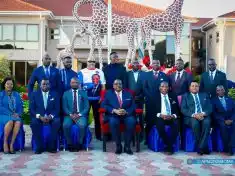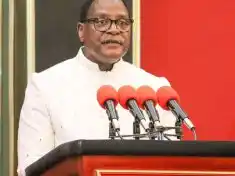
In the heart of southern Africa, Malawi is once again gripped by a heated debate over federalism, a conversation intertwined with ethnicity, power, and representation.
The latest spark came from a Facebook post by social media influencer Bright Mhango, known online as Morton Baghaya. A northerner and former journalist with Nation Publications Limited, Baghaya, now based in China, revived calls for federalism, arguing that successive governments have favoured their ethnic and regional strongholds, deepening national inequalities.
Tensions escalated after Democratic Progressive Party (DPP) loyalists circulated a list accusing President Lazarus Chakwera’s administration of favouring members of the Chewa tribe, predominantly from the central region.
The list alleges that over 20 top government and parastatal roles are held by Chewas, including key portfolios such as finance, agriculture, education, and security. Critics say development efforts also disproportionately benefit the central region under Chakwera’s Malawi Congress Party (MCP).
But this isn’t a new pattern. Under former President Peter Mutharika of the DPP, similar accusations were made. A widely shared list highlighted a dominance of Lhomwe individuals, Mutharika’s tribe, in top roles at institutions like the Malawi Revenue Authority (MRA). Critics accused the DPP of regional favouritism, patronage, and stifling dissent, particularly favouring the southern region in development efforts.
At the heart of the issue is a perception of unequal power distribution across Malawi’s four regions: north, central, east, and south. Baghaya and other federalism advocates argue that devolving power would ensure fairer representation, enabling each region to manage its own resources and development priorities. They say a federal structure could reduce the political weight of ethnicity and regionalism.
But opponents warn federalism could entrench division, undermine national unity, and foster ethnic isolation. Instead, they call for stronger institutions, merit-based appointments, and governance reforms to uphold constitutional protections against tribal and regional discrimination.
This is more than a political squabble. It’s a reflection of Malawi’s ongoing struggle with identity, equity, and inclusion. As the federalism debate resurfaces, it highlights the urgency of building a system that delivers fair representation and accountability.
Whether federalism is the solution remains deeply contested. But until Malawi confronts the root causes of exclusion and regional imbalance, the cycle of mistrust and tribal tension is likely to continue.








0 Comments